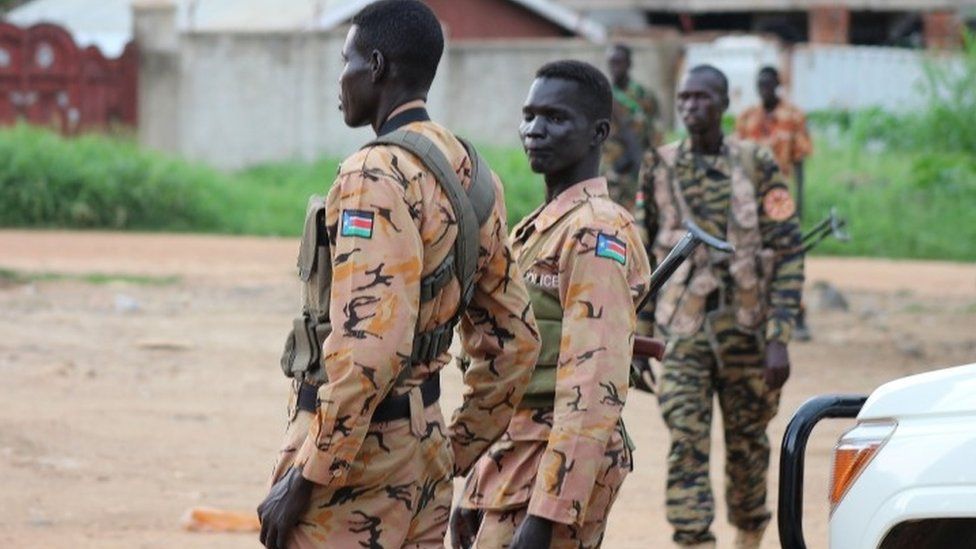South Sudan resident: 'We are counting the dead' in Juba
-
Published

Days of fighting between South Sudan's government and forces loyal to Vice-President Riek Machar have killed up to 200 people in the capital, Juba. Shops are closed and residents are staying indoors. We spoke to two people about how they are coping.
Emily Koiti - student
"I am OK, but my area in Juba is not OK.
"I can hear shooting and it appears to be getting closer to where I live.
"I have been staying at home since the fighting broke out on Friday.
"There are soldiers on the roads and I can't be sure which side they're on or what they would do to me if they stopped me.
"I trust the soldiers in my area but beyond that I cannot be sure.
"We're OK for food as we've stocked up for a month. We've been taking precautions since the civil war broke out in December 2013. And when it comes to water, we're harvesting rain water.
"As well as being a student, I am also a youth representative on the commission that monitors the peace deal that was signed last year.
"Every day since Friday, we have been counting the dead and wounded and we're wondering where this situation leaves us.
"Many people are seeking shelter in the UN camps in Juba. They're being told to go back home, but who is going to do that when people are still dying?
"I'd now like to see the international community get more involved. At what point are we going to get their support? At what point are they going to engage the leaders?
"Taking a long time to intervene makes South Sudanese wonder whether there is a threshold of people who must die or be wounded before there is an intervention.
"Pressure should be put on our leaders so that they either make sure they control the situation, or if they can't control it they have the humility to admit the challenges and get outside assistance.
"I would consider leaving, but it is the last option. I don't want to leave the country and I want this to end.
"I was here in December 2013 and this does remind me of that time. My fear is that it could escalate into what we saw then."
Ladu David Morris - charity worker
"The situation where I am is currently a bit tense. There is no movement and people are staying indoors, but there are soldiers on the streets outside.
"I can hear shooting going on right now in the town but it is not clear where it is coming from.
"I have been staying indoors for the past two days. There is nowhere to buy essentials as the shops are closed and the markets are not open either.
"Soldiers are now looting some property. They pretend to be patrolling but once they notice that no people are inside they break in and empty the property.
"My neighbour's house has just been broken into.
"We are lucky that we had some food items in the house and we have enough for another two days.
"I live with my family of six. We are all OK.
"The youngest child is a 12-year-old boy. He's traumatised by the gunfire and heavy artillery and we're trying to calm him down.
"The television news is not really saying what's going on and we're trying to get information from international media.
"We don't really understand what's going on because the government is not coming out with any information. They are silent and everyone is silent about what's happening.
"I'm worried that the violence is going to spread to other parts of the city, or the rest of the country.
"Personally I'm thinking about leaving if there is a safe way to get out."